Published: January 31, 2023 | Last Updated on: January 31, 2023 | by Hema
How should you discipline your child? Here are some effective strategies that actually work, while being gentle at the same time.
Jump To hide Why conventional disciplining techniques don’t work What does the law say? What is Positive Discipline? How to Discipline your Child – Strategies that Work 1. Model the right behavior 2. Set clear expectations 3. Don’t overuse ‘No’ 4. Consider the child’s age 5. Plan ahead 6. Try distractions 7. Encourage decision-making 8. Listen 9. Wait for the storm to pass 10. Use logical consequences 11. Call a time-out 12. Create a positive feedback loop 13. Be firm and consistent 14. Pick your battles 15. Spend one-on-one time References: Buy Healthy Nutritious Baby, Toddler food made by our own Doctor Mom !For most of us, the word ‘discipline’ is colored with negative tones – it brings to mind punishments, scolding, fear, and in some cases, spankings.
Unfortunately, for generations, we have misunderstood what the word discipline is actually supposed to mean. It is derived from the Latin word Latin disciplina, which means ‘teaching, learning, or instruction’. Discipline is about guiding and teaching, about directing along the right path. It has nothing to do with punishment, and certainly not the kind we’re used to associating with the term.


I know that this conversation can be a little triggering for some of us, especially those of us who’ve been subject to some degree of abuse during our childhood days. However, if we are to be just with our children, it is up to us to break the cycle and change the way we discipline our kids.
Why conventional disciplining techniques don’t work
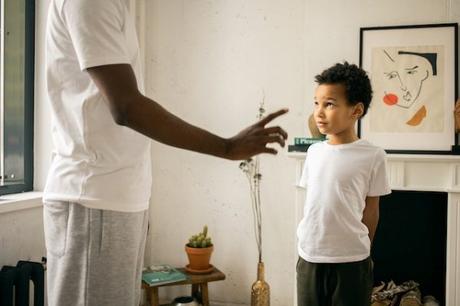
Several studies have shown that ‘traditional’ disciplining techniques like corporal punishment don’t work in the long term. In fact, most pediatricians today do not endorse this, with almost 98% of them thinking that spanking only makes things worse. While it is obvious that physical punishment of young children can result in injury, there are many adverse psychological effects too, such as these:
- Children who were spanked at 3 years of age showed more aggression by age 5
- Spanking in young children corresponded to a lower vocabulary score at age 9 and poorer cognitive abilities
- Spanking and verbal abuse before the age of 13 were directly associated with a higher incidence of adolescent troubles like drinking, school dropout, substance abuse, depression, and suicide attempts in later years
- Physical punishment has other physical effects like higher levels of stress hormones and a higher risk of heart disease
- Children who have been spanked are more likely to use hitting to get what they want
- Corporal punishment led to a decline in the parent-child relationship, at every age
For more detailed information on these studies, please refer to this report by the American Academy of Pediatrics.
What does the law say?

Besides all the adverse effects that physical punishment has on children and the parent-child relationship, it is also wrong in the eyes of the law. Here is what some of the leading authorities have to say on the matter.
1. The Global Initiative to End all Corporal Punishment of Children claims that any form of spanking, corporal punishment, humiliation, threats or any other act that scares or degrades the child amounts to child abuse.
2. The UN Convention on the Rights of the Child has asked all member states to take “appropriate legislative, administrative, social, and educational measures to protect the child from all forms of physical or mental violence, injury or abuse”
3. India has established the National Commission for Protection of Child Rights and the State Commission for Protection of Child Rights expressly to put a stop to corporal punishment for children.
4. Under Indian law, the Right of Children to Free and Compulsory Education (RTE) Act, forbids any kind of ‘physical punishment’ and ‘mental harassment’ under Section 17(1) while also making it a punishable offense under Section 17(2).
5. Any kind of cruelty meted out to a child under the guise of punishment is a punishable offense under Section 75 of the Juvenile Justice Act.
6. The Division Bench of the Delhi High Court has held that physically punishing a child went against his or her right to live with dignity, as guaranteed by Article 21 of the Indian Constitution.
7. The Gujarat High Court has ruled that corporal punishment of children has no legitimacy under Indian law.
8. Every school in India has been directed to create a ‘Corporal Punishment Monitoring Cell’, made with two teachers, two parents, a doctor, a lawyer, a counselor, a child rights activist, and two senior students.

The good news is that most parents today aren’t in favor of corporal punishment. A 2013 poll found that the number of parents who supported spanking as a form of punishment dropped significantly over the past few decades. Most parents, especially those under 36 years of age, didn’t think spanking was an appropriate way of disciplining a child.
Unfortunately, there are still occasions when parents resort to physical punishment to discipline their children, especially if they had been brought up with it. India’s Ministry of Women and Child Development conducted a survey that revealed that at least 5 students were beaten at school every day.
As parents, our intentions for our children are rooted in love – none of us actually want to hit or even shout at our kids. For many of us, it’s a reflex response because we don’t know what else to do. That’s why it is important for us to learn about positive discipline and how to implement it in our parenting journey.
What is Positive Discipline?
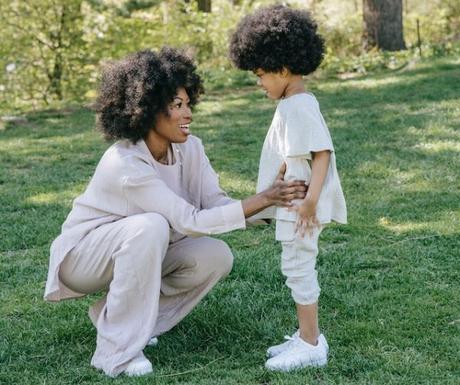
Positive discipline is what we get when we focus on the end goal of discipline – teaching and guiding – rather than punishment. Rather than focusing on what the child did wrong, positive discipline encourages us to focus on teaching the child the correct behavior, without shaming or being aggressive.
With positive discipline techniques, we teach children to self-regulate their emotions, handle their behavior and make the right choices. It results in a wholesome form of development, which is a much better strategy in the long term.
Before we begin, it is important to know what to expect of your child at every age:
Toddlers – They are beginning to explore their world and are starting to identify their boundaries with their new, improved mobility
Preschoolers – Children of this age are starting to learn what is allowed and what’s not, especially as their world becomes larger with the start of preschool
Early school-goers – They are more or less aware of the appropriate behaviors in different situations, and have increased contact with the outside world
Tweens – Tweens and teens are greatly influenced by their peers and are beginning to find themselves as individuals, with an increased need for independence
Now that we have a broad understanding of positive discipline and are aware of what to expect, here are some simple strategies on how to discipline your child – in a gentle and loving manner.
How to Discipline your Child – Strategies that Work
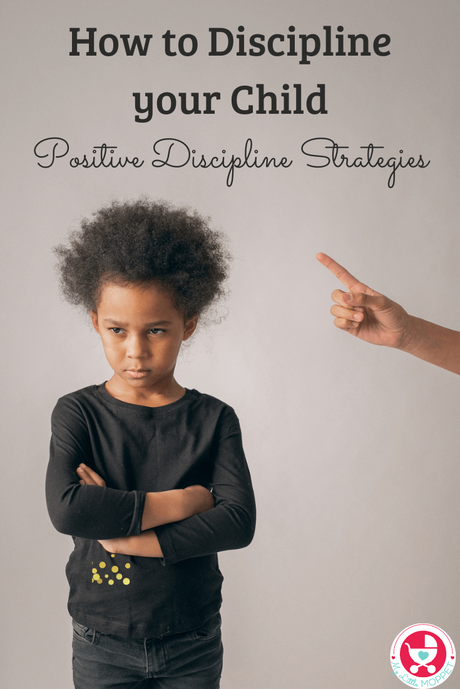
1. Model the right behavior

This is a fundamental point most parents tend to forget – your children will do whatever you do, whether it’s good or bad. If you spend all your time on your phone, it doesn’t make sense to punish your child for too much screen time.
Before you even consider ways how to discipline your child, it’s worth your while to look at your own behavior. How do you treat people around you? Do you lead a healthy lifestyle? What kind of language do you use at home?
Modeling the right behavior may seem hard, but it is far easier to let the kids copy that from you rather than struggle with correcting them later. This applies to everything, from your everyday lifestyle to the way you deal with conflict and the way you treat others. Even babies mimic our behavior, so it’s never too early to start.
2. Set clear expectations

If you haven’t told your child what you expect, it can be confusing for them when you get angry after they do something. Discipline should begin before the child does something – it’s about teaching, remember?
Tell your child exactly what you expect from them, in simple terms. ‘Please put all your toys in the box’ ‘Please put your plate away’. Use short sentences with simple instructions so they understand them clearly. Use your regular tone – don’t sound menacing or be too pleading.
A good way to do this is by assigning chores to your child, according to their age. This will set the expectation that certain tasks need to be done at certain times, and makes it easier to follow through.
3. Don’t overuse ‘No’

Once your child reaches toddlerhood, you probably find yourself saying ‘No’ a lot, especially when your little one runs to touch something hot. However, when you overuse the ‘no’, it tends to lose its value and ends up becoming just noise for your child.
Instead, reserve your nos only for critical situations, like when safety is at stake. Start by childproofing your home, so it eliminates the need to say ‘no’ frequently. For other situations, tell your child what she should do instead of what she’s currently doing.
4. Consider the child’s age

When looking for tips on how to discipline your child, particularly positive discipline strategies, you need to consider the child’s age. The strategies you find need to be implemented in an age-appropriate manner, with some being particularly relevant to a certain age group.
For instance, it is unreasonable to expect a toddler to sit still for half a day, or for a teenager to have no access to technology. Such demands only set you up for failure, so make sure you’re wise about your rules and instructions.
5. Plan ahead
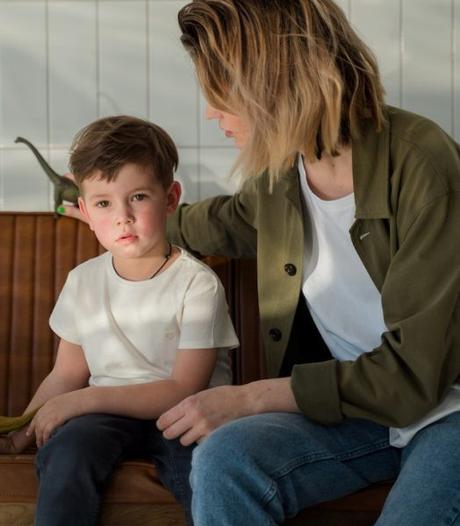
This is a positive discipline tip for younger kids. Most of their ‘bad behavior’ isn’t because they’re bad – it’s often because they’re hungry, thirsty, tired, scared, or any combination of these. The trick here is to be prepared to tackle these beforehand, so you’re not left negotiating with a hangry toddler.
If you’re traveling somewhere, be sure to consider your child’s naptimes and pack some snacks. Feed your kids before they get hungry. If your child tends to throw tantrums when at a store or supermarket, tell him beforehand that you are going to buy groceries, and that he can buy one thing of his choice. If your little one gets angry when you have to leave the park, give her enough advance notice so she can be mentally prepared.
6. Try distractions

This is a tip that’s a direct follow-up from the earlier one and applies to toddlers and preschoolers. If you feel like your child is misbehaving or about to throw a tantrum, try distracting them. This is also a good way to distract them from a potentially dangerous situation without having to use the word no.
When traveling, have a few toys or books on hand, preferably those that he hasn’t seen before. You can pull one out when they’re getting upset, so you don’t end up struggling with a tantrum.
7. Encourage decision-making

Most children exhibit bad behavior because they feel like everything is out of their control. This applies to everyone from toddlers to teens, and the solution for this is to include them in the decision-making process.
For toddlers and preschoolers, offer them a choice of two items, like a blue shirt or a red shirt, or a cucumber sandwich or a tomato sandwich. Too many choices can be overwhelming, so keep it to two. This small act gives them a feeling of independence and control.
For older children, involve them when deciding on what chores to assign them. Also include them when discussing household rules, like what time to be home, what time to go to bed etc. When they are a part of the rule-setting process, they feel more responsible and are more likely to stick to them.
8. Listen

When your child does something he is not supposed to, your first reaction is to blame them and show them how they’re wrong. However, it helps to listen to their side of the story, especially when it comes to older children and teens. When you hear what they have to say, it may help you take steps to avoid such situations in the future.
Listening to your child doesn’t just give them a chance to explain their version of what happened, it also shows them that you trust them and that what they say matters. It is a great way to create a sense of mutual respect and understanding, especially for teenagers. Encourage them to think of solutions themselves, and don’t belittle their ideas.
9. Wait for the storm to pass

Sometimes the only thing everyone needs is some time to cool off. If your child seems to be in a proper ‘mood’, wait for the storm to pass. Let the dust settle and you’ll find that everyone is in a much calmer mood.
If a young child is throwing a tantrum, simply stay quiet and let it pass. Most toddlers give up when they see it’s not getting them what they want. Then explain to them patiently that you’ll only listen when they use words and not when they’re screaming or whining.
For teenagers, it may require a little more nuance. If your teen is being disrespectful, tell them that you’ll be ready to listen when they can speak politely and you won’t accept any disrespect. Be firm and calm – yelling only makes it worse. Don’t say too much either – wait for the storm to wear off first.
10. Use logical consequences

When a child does something she isn’t supposed to, you may wonder what you can do besides punishing her. The answer here is ‘consequences’. The child will have to sacrifice some privilege for a certain period of time, so she learns her lesson and is less tempted to repeat the act.
Now deciding upon consequences is the tricky part. Making a child lose TV time because she didn’t put her clothes in the hamper makes no sense because the two are unrelated. The consequence needs to be tied to the child’s actions, only then will it serve as a teaching moment.
Consequences also need to be age-appropriate and should be based on reasonable expectations from your child. For older kids, you can decide on the consequences together. However, never take away something that is part of the child’s basic well-being, like meals and medicines.
11. Call a time-out

When looking for tips on how to discipline your child, you are bound to come across timeouts. These have been used for generations, and are an easy, yet effective way to implement positive discipline, especially for young kids.
When your child is about to do something or is doing something he shouldn’t, give them a warning, and then when they still continue, move them from the spot. Put them in another place – like a chair turned towards a wall – and then let them sit there for a short period of time.
The time period will depend upon the age of the child – a minute per year of age is generally considered a good guide. Set a timer that’ll go off after the prescribed time, so both you and your child know that the timeout is over. This is a great tool for self-regulation in young kids, but keep it under 5 minutes.
12. Create a positive feedback loop

By now, you know how to discipline your child when he or she does something wrong. But positive discipline also includes praising them when they do things right, or when they stay away from the wrong. If you focus on the teaching part when disciplining your children, they’ll soon learn what the expected behavior is.
Whether your child is a toddler or a teen, she or he will love hearing a good word from you. Praise them well, and be specific about exactly what good they did. This positive feedback makes them feel loved, and they are less likely to rebel or do mischief.
13. Be firm and consistent

Simply learning about how to discipline your child isn’t enough – you also need to implement the techniques consistently. It can be tempting to let things slide sometimes, but at such times you need to stay strong and stick with the agreed-upon consequences – that’s the only way you’ll have any kind of authority.
Always be consistent with consequences. Every time your child does the wrong thing, follow through and implement your consequences so your child knows exactly what to expect. It doesn’t just create a secure framework for your child, it ensures that your child learns faster.
Make sure everyone who parents the child is aware of these consequences, whether it’s the other parent, baby sitters, or grandparents. Consistent treatment from everyone makes life easier for your child and for you.
14. Pick your battles

At the end of the day, kids will be kids. While looking for ways how to discipline your child, don’t forget this essential fact. They are bound to forget, mess up, and act out. It’s all a part of growing up and navigating their place in the big world out there, and it is up to us to keep this in mind.
Discuss with your partner and decide on what really matters to you. What are the non-negotiables, and what are the things you’re okay with letting go of, at least for now. Pick your battles and then focus on them. Not only is it less difficult for your child to remember, but it’s also easy for you to implement.
15. Spend one-on-one time

If you want to create an environment at home that doesn’t require too much discipline, the best way is by spending one-on-one time with each child. Kids need attention from their parents, whether they’re 2 or 12. It fills their hearts, soothes their souls, and strengthens their bond like nothing else. Remember, acting out is just one way kids seek your attention.
If you have more than one child, make sure you give each child quality time separately, as well as spending some family time together. When siblings have fights, your response matters. In most cases, kids sort it out among themselves, but if they can’t, you need to be fair and impartial.
At the end of the day, you’re just human, so take it easy on yourself. If you do end up yelling at your child, don’t beat yourself up about it. When you’re calm, go back to your child and apologize for yelling. If you feel like you’re not in a state of mind fit to manage the situation, remove yourself. Just go to another room and take a few deep breaths. Go back only once you’re sure you can handle it.
If you have had a less-than-ideal childhood, it doesn’t mean that you’re destined to repeat those patterns. You can break the cycle, and give your kids the best of yourself. All your kids need to know is that you love them, no matter what they do. Don’t worry too much – your kids are going to turn out great!
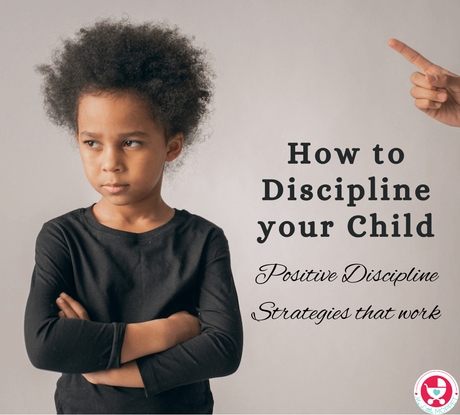
References:
- UNICEF
- American Academy of Pediatrics (AAP)
- Centers for Disease Control and Prevention (CDC)
- University of Rochester Medical Center
Buy Healthy Nutritious Baby, Toddler food made by our own Doctor Mom !
Shop now!You may also like
- Top 17 Effective Home Remedies for Stomach pain in Kids -…
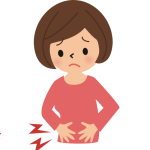
- Top 10 Effective Home Remedies for Diarrhea in…

- How to Choose the Right Pet for Your Child?

- Top 10 Reasons to Vaccinate your Child

- Raising a Bilingual Child

- How to Choose the Right Daycare for your Child

Filed Under: Parenting Tagged With: discipline, discipline your child, parenting
